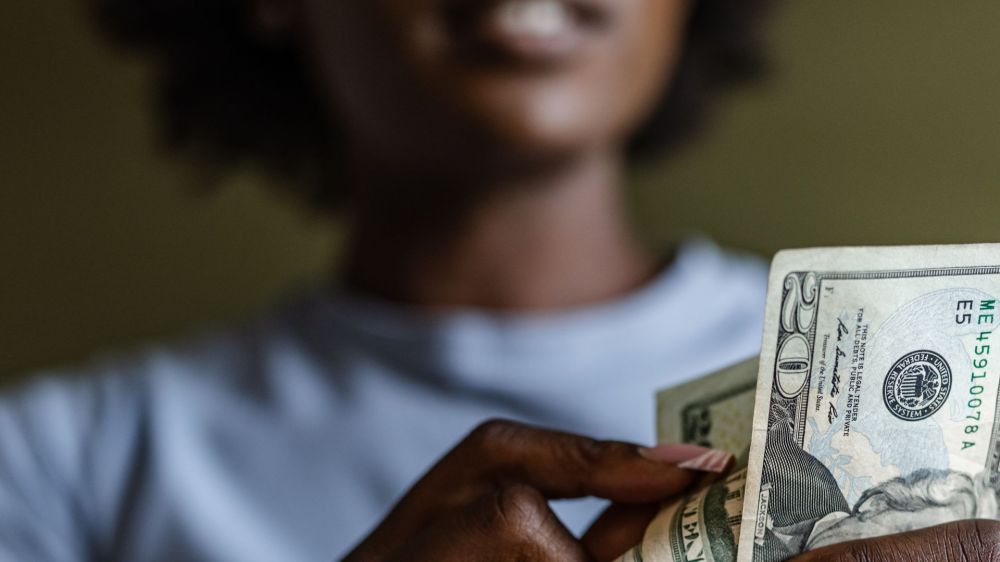 Getty Images
Getty Images
NAACP names best and worst companies for DEI in spending guide
By Alex Delia (Deputy Managing Editor)
- The NAACP released the Black Consumer Advisory on Saturday, Feb. 15, urging Black Americans to support companies that uphold diversity, equity and inclusion (DEI) and calling out those that have rolled back their commitments. The guide aims to leverage Black consumers’ $1.7 trillion spending power to hold corporations accountable.
- The advisory praises companies like Apple, Ben & Jerry’s, Delta Air Lines and Costco for maintaining DEI efforts, while naming McDonald’s, Meta, Walmart and Target among those that have scaled back.
- Corporate DEI rollbacks have increased due to political and legal pressure, including Donald Trump’s executive order and lawsuits challenging diversity policies in the private sector.
Full Story
The NAACP is urging Black Americans to direct their buying power toward companies that uphold diversity, equity and inclusion (DEI) commitments amid increasing corporate rollbacks. The civil rights organization released the Black Consumer Advisory on Saturday, Feb. 14, listing businesses that have either reaffirmed or abandoned their DEI initiatives.
Media Landscape
This story is a Media Miss by the right as only 7% of the coverage is from right leaning media. Learn moreBias Distribution
Left
Right
Untracked Bias
Why did the NAACP release a Black consumer spending guide?
The advisory comes as DEI programs face mounting political and legal challenges, with some major corporations reversing their commitments. The NAACP says its goal is to highlight businesses that continue to invest in workplace diversity, supplier diversity and Black community initiatives, while calling out those that have stepped away.

Download the SAN app today to stay up-to-date with Unbiased. Straight Facts™.
Point phone camera here
NAACP President Derrick Johnson said the initiative is not a boycott but a call to “buy-in” on businesses that align with consumers’ values.
“Diversity is better for the bottom line,” Johnson told The Associated Press. “If corporations want our dollars, they better be ready to do the right thing.”
Which companies are still committed to DEI?
The NAACP advisory praises companies that have upheld their DEI commitments, including:
- Apple – Encouraged shareholders to reject an anti-DEI proposal backed by conservative activists.
- Ben & Jerry’s – Reaffirmed its support for civil rights initiatives, announcing partnerships with the ACLU, National Center for Transgender Equality (NCTE) and Black Votes Matter in January 2025.
- Delta Air Lines – Described DEI as “critical” to their business and continues to publish Equal Employment Opportunity Reports detailing workforce diversity.
- e.l.f. Cosmetics – Maintained DEI hiring and supplier diversity initiatives.
- JPMorgan Chase & Co. – Reaffirmed investments in Black-owned businesses and financial programs.
- Costco – Continued its supplier diversity program and workforce equity efforts.
Which companies have rolled back DEI policies?
The advisory also names corporations that have reversed their DEI efforts:
- McDonald’s – Ended DEI hiring goals after completing a Civil Rights Audit (CRA) and assessing the “shifting legal landscape.”
- Meta (Facebook/Instagram) – Eliminated DEI hiring initiatives in January 2025 due to a “changing legal and policy environment.”
- Walmart – In November 2024, Walmart discontinued its Racial Equity Center, which had a $100 million commitment to racial justice programs.
- Amazon, Lowe’s, Target and Tractor Supply – These companies are also named in the advisory for scaling back diversity programs or eliminating DEI leadership roles.
The NAACP is in discussions with executives from these companies to determine whether they will reinstate their diversity programs.
What’s causing companies to cut DEI initiatives?
The corporate pullback from DEI comes amid conservative political pressure and legal challenges. Shortly after taking office, Donald Trump signed an executive order aimed at eliminating “illegal preferences and discrimination” in government agencies. The order also encouraged private companies to phase out DEI programs.
As a result, some companies have scaled back DEI efforts due to fear of legal repercussions or shareholder pressure. The FCC sued Comcast over its DEI policies, Missouri sued Starbucks for maintaining DEI initiatives, and shareholders have challenged DEI programs at Apple, Coca-Cola, IBM, Mastercard, PepsiCo and Berkshire Hathaway.
How do DEI rollbacks impact Black communities?
The NAACP warns that eliminating DEI threatens workplace diversity, business opportunities, and community investments. The advisory outlines key risks:
- Job losses – Companies are eliminating DEI leadership positions.
- Fewer opportunities for Black entrepreneurs – Reducing supplier diversity cuts off contracts with minority-owned businesses.
- Less corporate investment in Black communities – Ending commitments to HBCUs, scholarships and local initiatives weakens economic growth.
- A return to biased hiring practices – Abandoning DEI makes it harder for people of color, women, and other marginalized groups to access corporate jobs.
“We’re done with empty and broken promises,” said Keisha Bross, NAACP Director of Opportunity, Race and Justice. “This is a call for corporations and individuals to buy into the values and principles that reflect our interests.”
What Can Consumers Do to Hold Companies Accountable?
The Black Consumer Advisory encourages consumers to take action in five key ways:
- Spending Intentionally – Shop at businesses that support DEI and invest in Black communities.
- Demanding Accountability – Call out companies that have reversed DEI commitments and demand transparency.
- Supporting Black-Owned Businesses – Prioritize Black-owned service providers and entrepreneurs.
- Advocating for Policy Change – Push for laws that strengthen supplier diversity, workplace equity, and business opportunities for Black professionals.
- Staying Informed – Educate others about corporate DEI rollbacks and their impact.
The NAACP has also launched a Black Consumer Pledge, urging people to commit to supporting businesses that uphold diversity.
Why Does Black Consumer Spending Power Matter?
- Black Americans have $1.7 trillion in annual spending power, making them a major force in the economy.
- By redirecting their purchases, they can pressure corporations to maintain DEI programs.
- The NAACP believes economic influence is a powerful tool for advancing racial equity in business.
With the NAACP’s new advisory, consumers now have a guide to making values-driven spending decisions and holding corporations accountable for their promises.
Media Landscape
This story is a Media Miss by the right as only 7% of the coverage is from right leaning media. Learn moreBias Distribution
Left
Right
Untracked Bias
Straight to your inbox.
By entering your email, you agree to the Terms & Conditions and acknowledge the Privacy Policy.
MOST POPULAR
-
 AP Images
AP Images
Appeals court won’t reinstate Trump’s birthright citizenship order
Watch 0:399 hrs ago -
 Getty Images
Getty Images
Veteran federal prosecutor resigns amid pressure to investigate Biden agency
Watch 1:5215 hrs ago -
 Getty Images
Getty Images
Trump order stops taxpayer-funded benefits for immigrants in country illegally
Read16 hrs ago -
 Department of Defense
Department of Defense
Department of Defense and NASA face major cuts amid DOGE inquiries
Watch 3:2619 hrs ago




